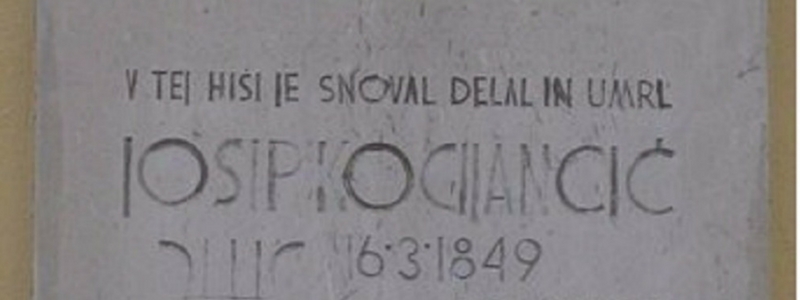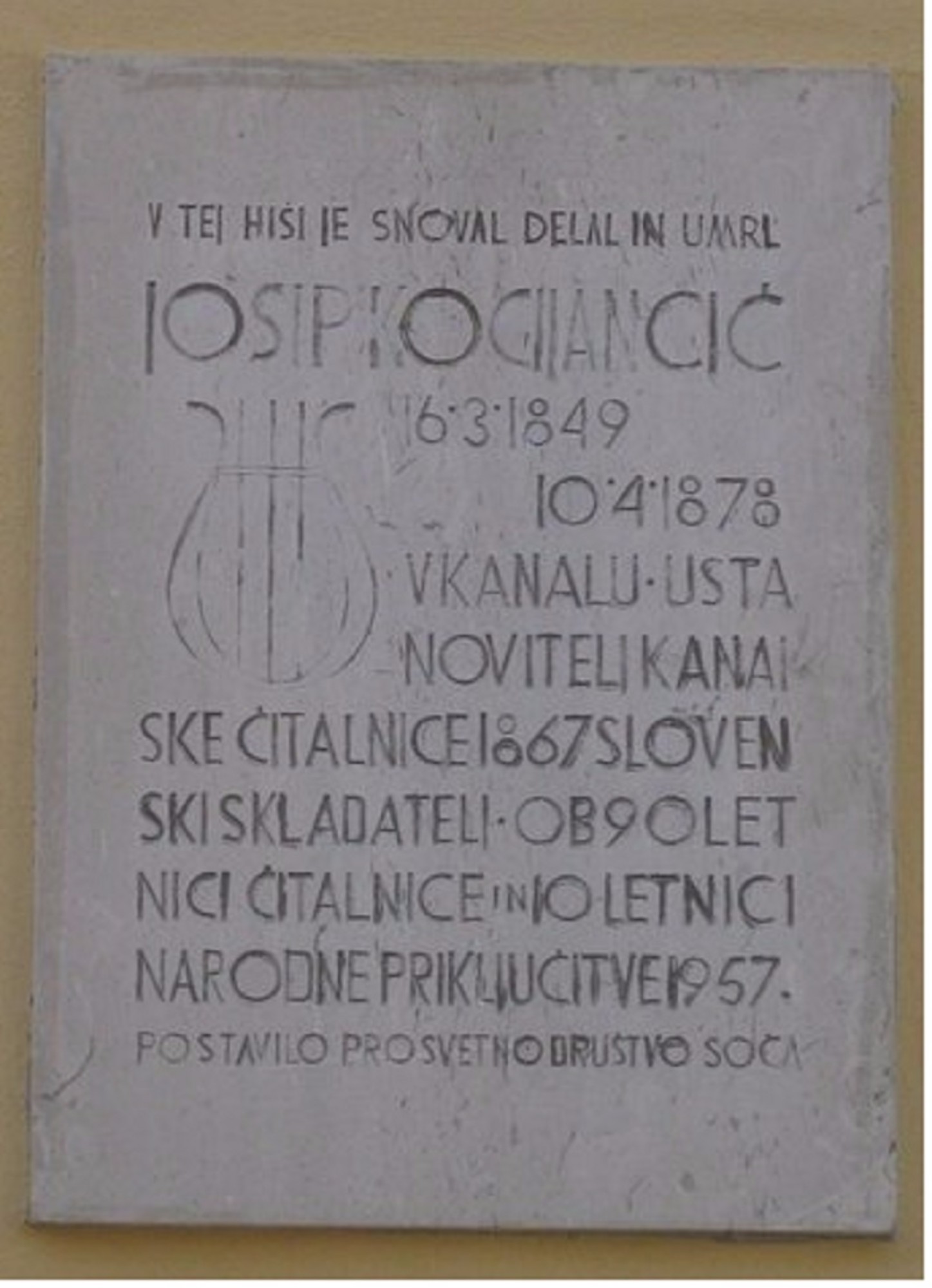In 1957, a memorial plaque was attached to the facade of the birthplace of Josip Kocijančič, bearing the inscription, “In this house in Kanal, Josip Kocijančič, founder of the Kanal Reading Room 1867, created his works and died, 16 March 1849–10 April 1878. Slovenian composers, on the 90th anniversary of the Reading Room and the 10th anniversary of the annexation of Primorska to Slovenia 1957. Put up by the Soča Cultural Society.”
Josip Kocijančič
Josip Kocijančič (1849–1878), a national awakening proponent, choirmaster, composer and publicist, established a Reading Room in Kanal ob Soči. Through this undertaking as well as with his arrangements and choral compositions, Kocijančič was instrumental in raising Slovenian national consciousness.
In his youth, Kocijančič’s enthusiasm for singing was aroused by theologian Matej Trepal and politician Dr Karel Lavrič, the ‘Father of Slovenians from Goriška.’ In the sixth grade of grammar school, he founded a Reading Room in Kanal, and in 1874 he formed the Slavec Choir in Gorizia. As a choirmaster in Gorizia, he enthralled audiences at bésede, events aimed at raising Slavic nationalist sentiment. Although mostly an autodidact, he attained some musical knowledge with Tovačovski, then choral director of the Slavic Choral Society in Vienna, and with musicians from Goriška, the priests Anton Hribar and Avgust Leban.
While later deciding to study law at the University of Vienna, he was more drawn to music and suspended his studies temporarily to teach singing in Slovenia. He completed his law and history studies in 1876 in Graz, enjoying financial support from patron Ignacij Gruntar. He subsequently served as a notary intern.
In Kanal, Kocijančič was an indispensable and outstandingly successful teacher of singing. It was a military choir rehearsal that proved detrimental to his health, resulting in a fateful cold from which he never recovered. He died of consumption.
Apart from teaching he also composed music, collected folk songs and arranged them for choirs. His major source of inspiration was the idea of national consciousness, which he sought to promote in Goriška through Slovenian songs. He published two volumes of his arrangements of Slovenian national songs and a volume of compositions for male choir Čuti v napevih (Sentiments in Melodies). The third volume of national-song arrangements was not published and was lost after his death. Simple harmonisation and somewhat sentimental melodicism mark both his songs and arrangements.
Alongside Gustav Ipavec, Hrabroslav Volarič and Anton Hajdrih, Kocijančič ranks among the composers who crucially shaped the Slovenian early romantic period.
Maia Juvanc

